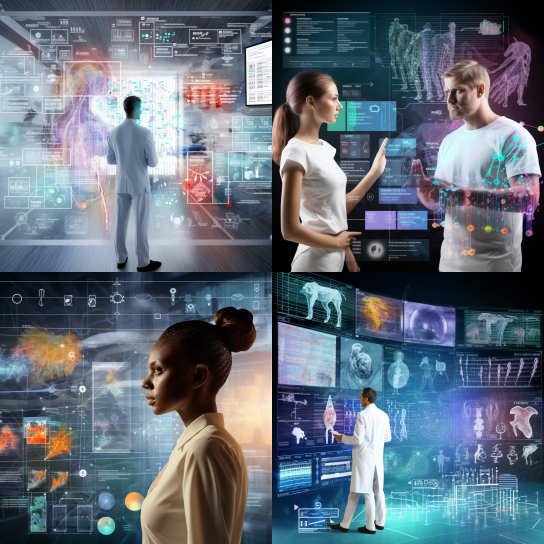AI Bias and Fairness: Ensuring Ethical AI Development
Ensuring Ethical AI Development
AI Bias and Fairness: Ensuring Ethical AI Development
AI Bias and Fairness: Ensuring Ethical AI Development
Navigating the Path to Fairness: Addressing Bias in AI
Greetings, thoughtful minds and advocates for fairness! Today, we embark on a crucial journey into the realm of AI Bias and Fairness, a topic that resonates deeply in our technologically advanced world. As Artificial Intelligence becomes more integrated into our lives, it brings with it the potential for biases that can reinforce societal inequalities. Join us as we explore the nuances of AI bias, its impact, and the strategies to ensure ethical and unbiased AI development for a more just future.
Real "AI Buzz" | AI Updates | Blogs | Education
Understanding AI Bias: Unraveling the Complex Threads
AI algorithms learn from data, and if the data contains biases, the AI system can perpetuate those biases. Whether it’s gender, race, or socioeconomic status, these biases can manifest in AI-driven decisions, affecting areas like hiring, lending, and law enforcement.
Implicit Biases: The Unseen Influences
Implicit biases, subtle prejudices that affect our judgments and decisions unconsciously, can seep into AI algorithms. Identifying and mitigating these biases is essential to ensure AI systems make fair and impartial decisions.
Data Bias: The Foundation of AI Discrimination
Biased datasets can reflect historical prejudices. If a dataset contains primarily one type of information, the AI system might not generalize well to diverse groups. Addressing data bias is fundamental to developing fair AI models.
The Impact of AI Bias
Reinforcing Inequalities
Biased AI can reinforce existing societal inequalities. For instance, biased hiring algorithms can perpetuate gender or racial disparities in the workplace, hindering progress towards a more inclusive society.
Trust Deficit: Eroding Confidence in AI
When AI systems produce biased outcomes, it erodes public trust. People lose confidence in technology that appears unfair. Building trust requires addressing biases transparently and proactively.
Strategies for Ethical AI Development
Diverse and Representative Data: Building Inclusive Models
To create unbiased AI, datasets must be diverse and representative. Including various perspectives ensures AI systems learn from a broad spectrum, reducing the risk of biases.
Continuous Monitoring and Evaluation: Keeping Bias in Check
AI models need constant monitoring. Regular evaluations can identify biases as they emerge, allowing developers to intervene, retrain models, and rectify unfair outcomes.
Educating AI Developers and Users
Ethical AI Training: Empowering Developers
Educating AI developers about the nuances of bias and fairness is crucial. Training programs should emphasize ethical considerations, encouraging developers to proactively identify and mitigate biases in their creations.
Raising Public Awareness: Informed AI Users
Digital literacy programs can educate the public about AI bias. Informed users are more likely to question biased outcomes, fostering a collective demand for fair and accountable AI systems.
Read More









Leave a Reply